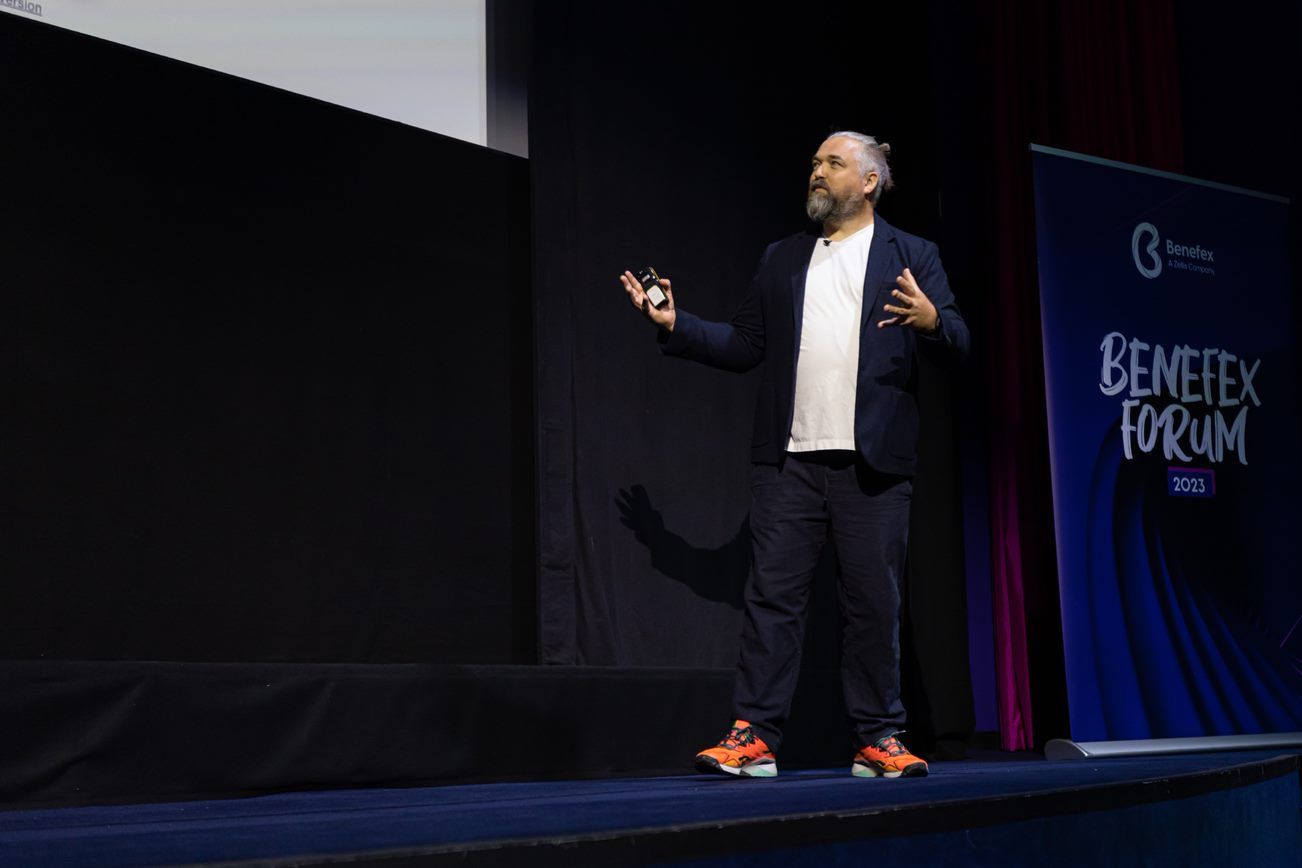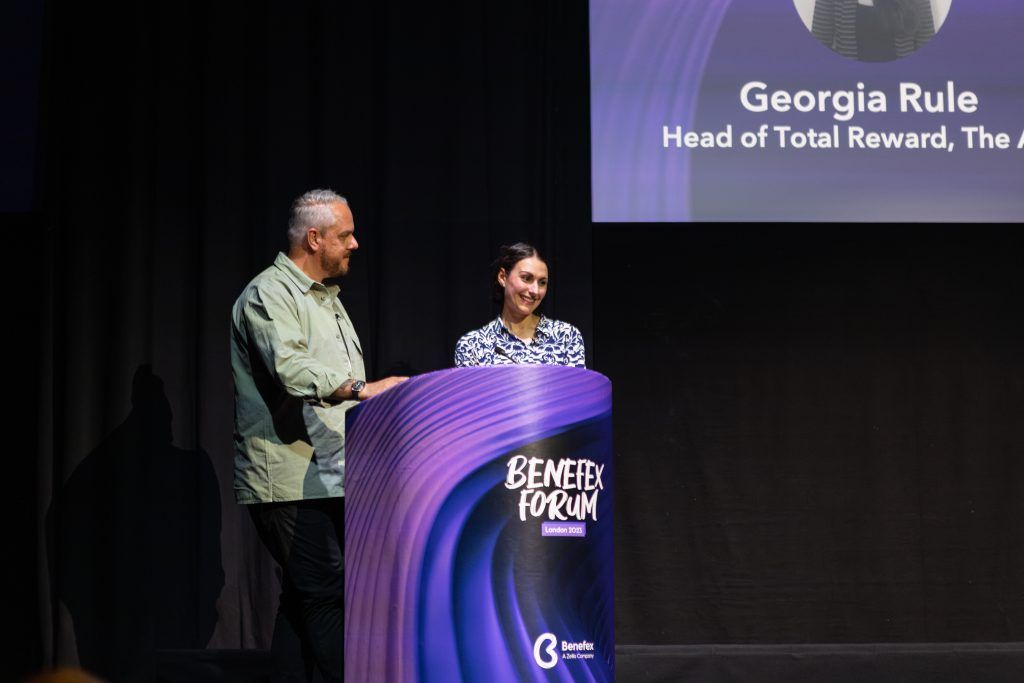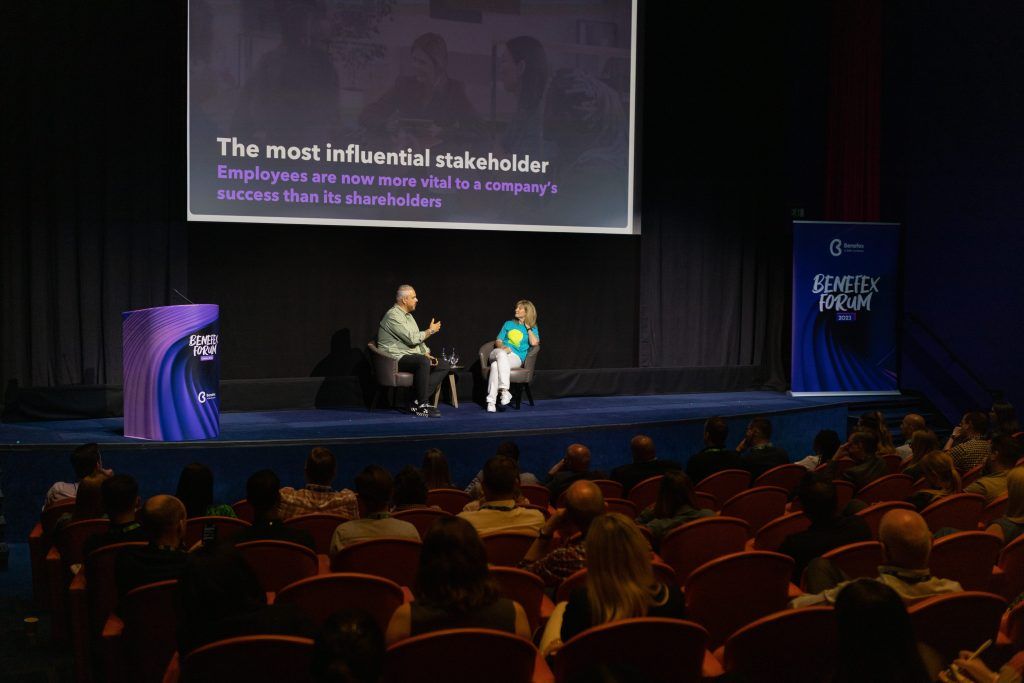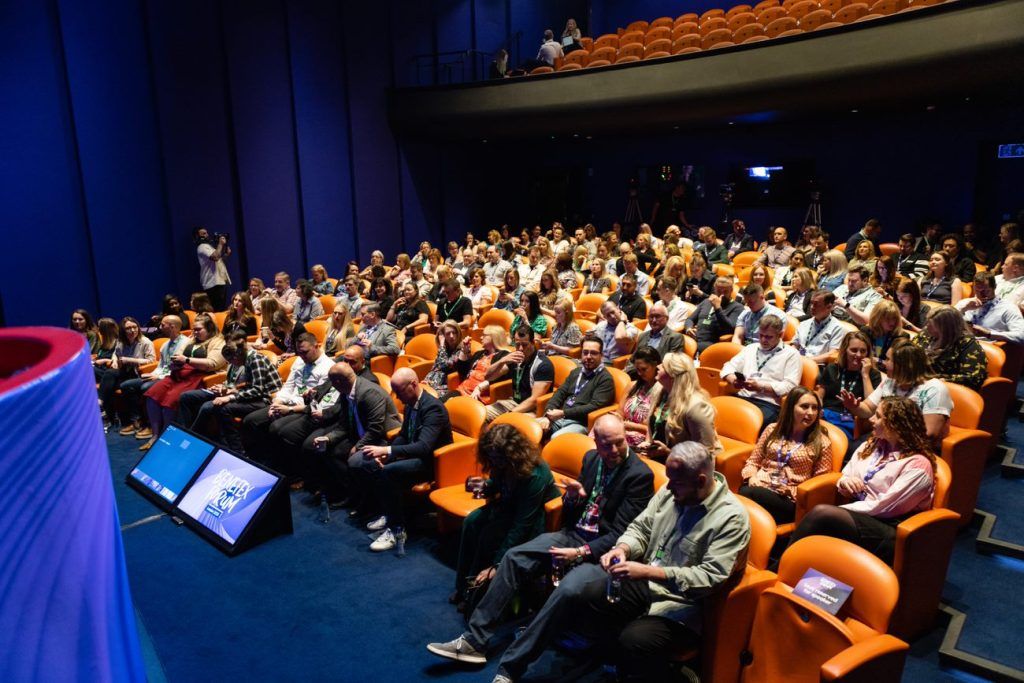
Blog, Employee Benefits, Global
5 Top Takeaways from the Benefex Forum 2023
12-06-2023
Every year Benefex hosts 150 reward and benefit leaders for an all-day event in London. It’s a great opportunity to take stock of the big changes in the reward and benefits market, hear about our customers’ unique challenges and how they’re solving them, as well as share learnings on how to simplify processes, cut through the noise, and achieve the reward outcomes companies need.
At last year’s Forum, we explored how employers were adapting to the ‘great expectations’ of employees that came from a greater focus on wellbeing as we emerged from the pandemic – and in many ways, the pressure employees are facing today has only increased.
The Benefex Forum 2023 considered how reward and benefits leaders can take their function from chaos to calm, and navigate disruption – from growing employee expectations, to increased administration, and changing benefit requirements. Not to mention the fact that wellbeing, the wider employee experience, technology implementation, ESG and DEI are increasingly falling under the reward remit.
We heard from Benefexers, customers (the AA, EE and Baker Hughes), as well as special guest John Amaechi – and the prevailing theme of the day was how to create a better deal and experience at work for employees, beyond pay.
Here are our five top takeaways
1. Employee expectations are increasing, driven by uncertainty
Benefex Founder and CEO, Matt Macri-Waller, kicked off the day with his keynote speech – From Chaos to Calm – or, as he put it, “from chaos to slightly less chaos”. He discussed the myriad of factors that are putting pressure on employees today, from high inflation to the cost-of-living crisis, largescale redundancy, and social instability. Employees are less willing than ever to tolerate poor experiences at work and are actively searching out employers who will support them across all aspects of wellbeing, and who are aligned to their own personal values.
Matt shared key findings from Benefex’s brand new Evolution research report, highlighting that 96% of employers have seen employee attitudes and behaviours change in the last 12 months. With employee expectations changing at pace, reward directors need to build processes that enable them to evolve much faster.
2. Benefits, reward, and recognition make a real difference to employees’ lives, every day
“The experiences we deliver matter.” – Benefex Founder and CEO, Matt Macri-Waller
Several of the speakers predicted that wellbeing will be a key area of focus for benefit and reward leaders over the next 12 months. Indeed, the number one factor an employee is looking for when choosing a new employer is a commitment to employee wellbeing; 64% of employees said that this was very important to them (Benefex Evolution report).
Award-winning psychologist and Benefex Chief Innovation Officer, Gethin Nadin, highlighted that employees are facing greater social pressure than ever before – many people working full time are struggling to pay for essentials, the average employee joining the workforce post 2008 is on average €70k worse off in their lifetimes, and home ownership among young people has halved. These pressures impact not just people’s financial wellbeing, but also their physical and emotional wellbeing – and it’s no surprise that this is impacting productivity, creativity, and customer service at work.
The benefits that organisations offer change lives and can provide real life support, stability and protection for employees. We heard from Georgia Rule, Total Reward Director at the AA, who shared how shining a light on their EAP, physio benefits, their wellbeing hub, menopause policy, and financial resources, has improved employee wellbeing (with a 25% reduction in employees saying they’re experiencing stress), and reduced absence by over 15%.

3. Communication is critical
It’s all very well providing employees with a plethora of great support and benefits – but if employees don’t know they exist or how to access them, they won’t have the intended impact.
Georgia explained that, although the AA were already doing a lot to support people across all areas of wellbeing, employees weren’t finding or engaging with these resources. So, the AA reassessed the user journey and launched a multi-channel communication campaign across benefits, reward and benefits – using data to decide where they should focus first. As a result, engagement increased significantly.
But for communications to be fully effective, they need to be fully inclusive. During a fireside conversation with Gethin Nadin, Andrea Kilgour, People Director at EE, highlighted that a priority for EE is to better cater for neurodiverse candidates and employees. Both EE and the AA are also evolving the way they advertise jobs to show candidates the value of the employee experiences they provide, right from the outset.
And it’s not just communication with employees that’s important; showing stakeholders the value of reward and benefits was also a topic that resurfaced throughout the day. Positioning reward and benefits as an investment, rather than a cost creates enduring company value and helps organisations become employers of choice – so that they can attract, engage and retain the best people.

4. Purpose matters in the new world of work
What people want from work is changing. 47% of global employees say that their expectations at work have changed in the last 12 months in relation to working for an employer that aligns with their personal values (Benefex Evolution Research). Employees are looking for employers that are committed to employee wellbeing, have a strong benefits provision, offer flexible working, and have high ethical standards.
Reward and benefits leaders are looking for new ways to engage people in their jobs and help them deliver their best work. There was consensus among the speakers that creating a better EVP (employer value proposition) is needed to support people and make coming to work more attractive.
John Amaechi OBE spoke about how to build a workplace that nobody wants to leave, where there’s agency, trust, communication, transparency and psychological safety. Although tech will shift how work is done, he believes that “the future is human,” and the skills of people to lead, empower, and educate and learn from the people they work with will be ever-more valued. The most successful organisations will commit to do no harm to others and be more aware of the impact they have on their people and the world around them.
5. Technology has a key role to play in delivering better employee experiences
The average enterprise has 147 different platforms in place, so organisations need to simplify the employee experience and make it easier for employees to get what they need, when they need it.
Employees are increasingly frustrated that the technology they are forced to use at work is so far behind the experiences they have in their personal lives. Our Evolution research shows that global employees are currently lacking enthusiasm for digital aspects of their employee experience – such as online recognition, wellbeing and benefits, with only 26% of employees rating their online experiences as excellent.
As we heard from Georgia Rule, Total Reward Director at the AA, and Magdalena Vintrova, International Total Rewards Executive at Baker Hughes, seamless, unified and accessible experiences are particularly crucial for dispersed or global workforces. The AA uses Benefex’s OneHub Benefits app to engage their 3,500 employees out on patrol. And Baker Hughes has rolled out OneHub across 10+ countries to streamline the regional onboarding experience, increase benefits personalisation and flexibility, and achieve a consistent experience that is better aligned with their mission as an energy technology company.
By providing a single place for benefits, recognition, reward and wellbeing, employers can show their people the value of everything they do for them and support the organisation’s culture (as well as streamlining processes for HR teams; by implementing OneHub, Baker Hughes was able to reduce employee enquiries by 50%).

Get our new Evolution report
Want to learn more about these trends? Our brand-new Evolution report explores both sides of the relationship between global employers and employees. The first edit examines how employee expectations are evolving, their motivations and frustrations, and what they think of their experiences as work. And the second edit explores how global employers are adapting and responding with benefits, recognition, wellbeing and reward. Read the Employee edit here.


